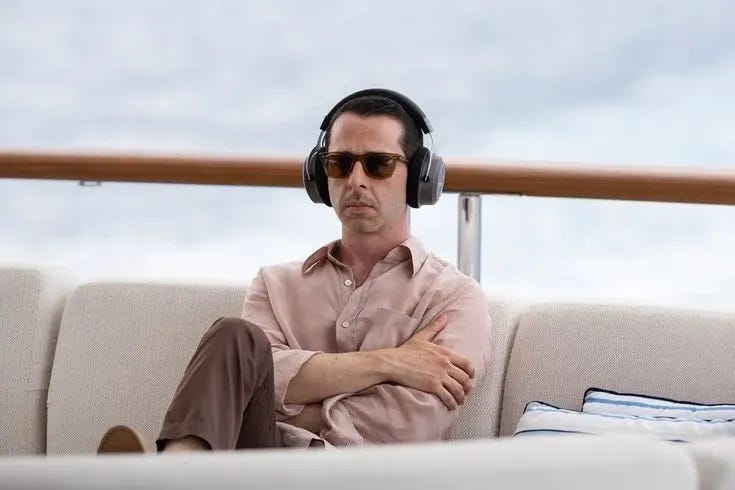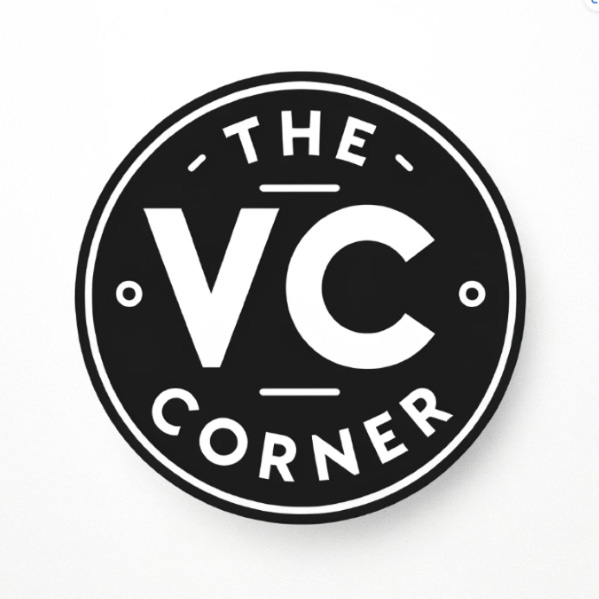Corporate Work Has Become Theater
Meetings, decks, and empty titles: why the corporate job is dying and the future of work will look radically different
Last week, I had coffee with someone who works at a big consulting firm. She spent twenty minutes explaining her role to me. Not because it was complex, but because she was trying to convince herself it existed. "I facilitate stakeholder alignment across cross-functional workstreams," she said. Then laughed. "I genuinely don't know what that means anymore."
She's not alone. I keep meeting people who describe their jobs using words they'd never use in normal conversation. They attend meetings about meetings. They create PowerPoints that no one reads, which get shared in emails no one opens, which generate tasks that don't need doing.
The strangest part: everyone knows. When you get people alone, after work, maybe after they've had time to decompress, they'll admit it. Their job is basically elaborate performance art. They're professional email forwards. They're human middleware between systems that could probably talk directly to each other.
This isn't leading where you'd expect.
The Great Pretending
Walk through the City or Canary Wharf at 8 am and you'll see thousands of people who look purposeful. Sharp suits, coffee in hand, calls already starting. The whole thing seems impressively important.
But talk to those same people individually, and a different story emerges. They're in back-to-back meetings where nothing gets decided. They're managing projects that exist primarily to justify the existence of project managers. They're creating strategies for strategies, optimising things that didn't need optimising, disrupting things that were working fine.
A friend at a major bank recently told me about his typical day. He arrives at 8am, leaves at 8 pm, and when I asked what he actually did in those twelve hours, he couldn't point to a single tangible thing. "I enable decision-making," he said, then caught himself. "Whatever that means."
The pandemic pulled back the curtain for a moment. When everyone worked from home, it became obvious who was actually doing things and who was just... there. Some people's entire roles evaporated when they couldn't physically attend meetings. Others discovered they could do their "full-time" job in about three hours a day.
Now we're back in offices, and everyone's pretending again. But something's shifted. The pretence feels different. More conscious. More exhausting.

The hidden economy of nonsense
The anthropologist David Graeber called these "bullshit jobs", roles that even the people doing them suspect are pointless. But I think it's evolved beyond that. We've built entire ecosystems of mutual nonsense.
Consider the average corporate decision. It starts with someone identifying a "opportunity" (usually a non-problem). This triggers a cascade: analysts analyse, consultants consult, middle managers manage the consultation of the analysis. Workshops are held. Stakeholders are engaged. Decks are created.
Months later, something might happen. Usually, it's a minor adjustment that could have been made in an afternoon by anyone with common sense.
Everyone involved knows this. The analyst knows their model is largely guesswork. The consultant knows their framework is just common sense in a matrix. The manager knows the workshop is a theatre. But they all need each other to maintain the illusion.
It's like a corporate version of the emperor's new clothes; everyone can see the emperor is naked, everyone knows everyone can see it, but we've all agreed to keep complimenting his outfit because our mortgages depend on it.
The parallel system
What's emerging is something very interesting. People are building parallel systems of actual value while maintaining their corporate personas.
I know developers who do their "official" job in the morning and build their own products in the afternoon. Marketers who run their agencies from their corporate desks. Consultants who've automated their actual deliverables and spend most of their time on side projects.
They're not quitting. They're using the corporate infrastructure, the steady salary, the laptop, the stability, as a platform for building something real. The corporate role hasn't died; it's become a funding mechanism for actual work.
One person I spoke to called it "corporate entrepreneurship", not in the LinkedIn way where you're an "intrapreneur" innovating within your company, but in the sense that you're using your corporate presence to subsidise your real work.
The Young and the Restless
This is particularly acute for people in their twenties. We entered the workforce just as the illusion was becoming impossible to maintain. We never had that period where we could believe our corporate roles were meaningful.
My friends from university are scattered across London's glass towers, and virtually none of them believe their job title describes anything real. They're "Growth Hackers" who've never hacked anything, "Digital Transformation Leads" transforming nothing, "Innovation Managers" managing the absence of innovation.
But instead of the existential crisis you'd expect, there's something else emerging. A kind of pragmatic acceptance coupled with creative subversion. They're showing up, playing the game, but building escape routes.
Nobody believes in the corporate role anymore, even while performing it perfectly. The belief is gone but the performance continues.
The commute as costume change
Watch Liverpool Street station at rush hour. It's not just people travelling to work, it's a mass transformation ritual. The person who boards at 7:15 am isn't the same person who'll be present at that 10 am meeting.
I watched someone on my train recently. Hoodie and headphones at the start. By Clapham, he was in a shirt. By Bank, full suit. His posture changed with each addition. His face rearranged itself into something I can only describe as "professional neutral."
The reverse happens every evening. The gradual shedding of corporate identity as the train moves further from the centre. By the time people reach their actual homes, they're human again.
What actually dies
The corporate role isn't dying in some dramatic collapse. It's dying like religion died for many people, slowly, through diminishing belief rather than disappearing churches.
The structures remain. The offices still gleam. The meetings still happen. The emails still flow. But the faith that this activity means something, that it's building towards something worthwhile, that it justifies the life hours it consumes, that faith is evaporating.
What replaces it isn't clear yet. Maybe it's this parallel economy of people using corporate jobs as platforms. Maybe it's something we haven't seen yet. But the transition period, where we all pretend to believe in something we know is hollow, is unsustainable.
The most honest person I've met recently was a VP at a tech company who told me: "I manage a team of twelve people who create documents for other teams who create documents for senior leadership who don't read documents. I make £150k a year. It's completely absurd, and I'm riding it as long as I can while building something real on the side."
The opportunity in the emptiness
If you're reading this from inside one of these roles, feeling like you're going slightly mad from the cognitive dissonance, you're not alone. The madness isn't in you; it's in the system that asks you to pretend that forwarding emails is a career.
The moment you stop believing in the corporate fiction is the moment you can start using it. Once you see it as infrastructure rather than identity, as a resource rather than a calling, everything shifts.
Your corporate role doesn't need to be meaningful. It needs to be useful. Useful for building skills, for funding your real projects, for buying time while you figure out what matters to you.
The death of the corporate role isn't a crisis. It's freedom from having to pretend your spreadsheet about spreadsheets is your life's work.
Permission to stop pretending
So here's your permission slip, if you need one: you can stop pretending your corporate role is real. You can show up, do the tasks, attend the meetings, but you don't have to believe in it. You don't have to tie your identity to your email signature.
The people around you probably don't believe in it either. They're just waiting for someone else to admit it first.
The corporate role is dead. Long live whatever comes next.
What’s your take?
Check out the following article in the series here: Part 2, Part 3
🛠️STARTUP RESOURCES (The VC Corner)
✅ The Venture Capital Method: how VCs value startups
✅ IRR vs Return Multiple Explained + Template
✅ The Headcount Planning Module
✅ CLTV vs CAC Ratio Excel Model
✅ 100+ Pitch Decks That Raised Over $2B
✅ VCs Due Diligence Excel Template
✅ SaaS Financial Model
✅ 10k Investors List
✅ Cap Table at Series A & B
✅ The Startup MIS Template: A Excel Dashboard to Track Your Key Metrics
✅ The Go-To Pricing Guide for Early-Stage Founders + Toolkit
✅ DCF Valuation Method Template: A Practical Guide for Founders
✅ How Much Are Your Startup Stock Options Really Worth?
✅ How VCs Value Startups: The VC Method + Excel Template
✅ 2,500+ Angel Investors Backing AI & SaaS Startups
✅ Cap Table Mastery: How to Manage Startup Equity from Seed to Series C
✅ 300+ VCs That Accept Cold Pitches — No Warm Intro Needed
✅ 50 Game-Changing AI Agent Startup Ideas for 2025
✅ 144 Family Offices That Cut Pre-Seed Checks
✅ 89 Best Startup Essays by Top VCs and Founders (Paul Graham, Naval, Altman…)
✅ The Ultimate Startup Data Room Template (VC-Ready & Founder-Proven)
✅ The Startup Founder’s Guide to Financial Modeling (7 templates included)
✅ SAFE Note Dilution: How to Calculate & Protect Your Equity (+ Cap Table Template)
✅ 400+ Seed VCs Backing Startups in the US & Europe
✅ The Best 23 Accelerators Worldwide for Rapid Growth
✅ AI Co-Pilots Every Startup & VC Needs in Their Toolbox





excellent article, especially that lockdowns have accelerated the young generation's realization of the truth.
This is spot on. Really needed this read. Thanks for sharing